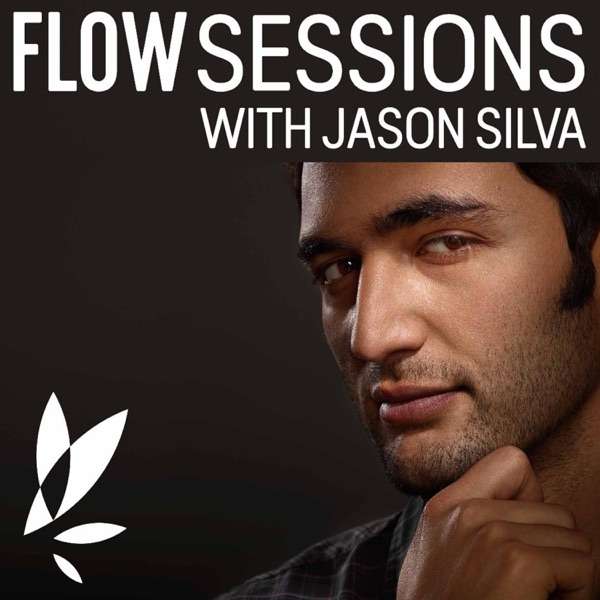Are you worried about what your summer might look like as an academic this year? I'm sharing advice and actionable tips for how to get writing done, even this summer.
Summer has a beautiful appeal to us as academics. The spring semester is over and summer stretches ahead of us with the appeal of more control, more time, less demands. But, even when we're not dealing with a global pandemic, we often arrive at the end of summer with a lot less accomplished than we had hoped.
In this episode of The Academic Woman Amplified I'm giving you my advice for how to approach summer writing no matter what your circumstances are like right now. I'm sharing goal setting basics, skills you need to develop, and the secret to having a summer full of ease.
We are living through unprecedented times right now, and this summer promises to be different than any other we've experienced. As I've been talking with many of you, I'm noticing some trends about how many of you are feeling, that seem to fall into three areas (some of which overlap).
- You may have increased care demands this summer. Your kids are probably going to be home with you, you may have an elderly family member you are caring for, or other household members working from home. Your day may include much more time spent caring for others than your typical summer day in past summers.
- You may have increased levels of anxiety. You might be worrying about the pandemic and its effects on your life. Much of your brain space is taken up with worry, on news channels, or trying to maintain connections with others through social media. You might feel like you don't have much left over for writing.
Both of these things are valid, they make sense, and I've got strategies for you to deal with them.
- You might feel like you actually have more time and the opportunity to get more done than you usually do. Maybe a lot of time that you spent commuting or on in-person activities is now available to you. You might be balancing feelings of guilt over seeing positives in this negative situation with the desire to take advantage of this time. Well, I'm giving you permission to see something positive amidst the negative.
No matter which of these camps you see yourself in, we can make this summer work for you and your writing.
Goal Setting Basics
When you get ready to set goals for the summer, here are three things I want you to do to make sure those goals serve you well.
"There's no way that you're going to get anywhere unless you have some goals in mind."
1. Plan Less to Accomplish More
It's so tempting to try and push through with a giant list of goals, but I am here to tell you that if you try to do that, you will end up with less to show for your efforts at the end of the summer than if you pared it back. Keep in mind the visual of a pipeline vs. a funnel:
Pipeline= a steady flow; when you start one project at the beginning of your pipeline, it comes smoothly out the other end.
Funnel= a stopped up trickle; you dump lots of things in at the beginning, but hardly any of them come out the bottom, and if they do, it takes forever.
You want to keep your projects flowing through your pipeline, so the key is to only work on a few at a time, otherwise you risk the funnel effect.
2. Use the Power of the Big Three
Scale your big list of projects and tasks back to three. Three is a reasonable number to hold in our minds, and to get done in three months. Focusing on a smaller number relieves overwhelm and frees your mind. If you accomplish those 3 goals early, then (and only then) you can choose another. This means you will have to get strategic and make some hard decisions about what to keep and what to push back or cut.
"Not every project is worth your time."
3. Create Positive Feedback Loops by Choosing Goals You Can Crush
I always recommend Jon Acuff's book "Finish" when talking about goal setting. In it, he talks about the importance of accomplishing goals to boost confidence in order to be able to continue on to finish what you start. The way to do this is to cut your goals in half, or double the amount of time you give yourself to finish them. When you are able to accomplish your goals, the wave of momentum and confidence keeps you going.
3 Skills to Develop to Support Your Writing This Summer
Giving yourself strong, accomplishable goals is the first step. Once you have those set, you need to develop these 3 vital skills to support your writing and check off those goals.
1. Writing Project Management
We're always managing multiple projects as academics, and summer is no different in that respect. You need to hone your project management skills to be able to break down your projects into tasks, manage deadlines, direct team members or work with co-authors.
In my Academic Women's Writing Roadmap course we teach project management skills and how to apply them for your specific goals.
2. Writing Systems Development
Writing systems are any recurring practices you use to get your writing done. (Panic writing when a deadline is bearing down on you is not a writing system!) What do you have in your toolbox full of strategies to help you manage the challenges this summer might present? For example:
- How is your system going to help you balance your brain space with anxieties you may be dealing with?
- How will your system work in tandem with extra care constraints?
In my programs, we teach how to develop systems, with an emphasis on the Tiger Time method, which I cover in detail on Episode 2.
Keep in mind that if writing just isn't going to fit into your life this summer, you should take the summer off from writing. But be sure to look at your calendar and plan a re-entry date.
3. Pipeline Planning
To keep that pipeline flowing smoothly, you'll need to practice pipeline strategy and pipeline management. Strategy involves planning out what you will work on to benefit your overall goals and career plan. Management involves working through your pipeline, tending it to be sure it doesn't turn into a funnel.
We cover both of these components in our Writing Roadmap course, teaching you how to strategize, manage and adapt your pipeline to fit your needs.
The Secret to a Summer Full of Ease
Notice I didn't say "the secret to an easy summer". I'm not promising that following this advice will make things "easy", but that it will help you release some of the tension and overwhelm, and make you feel more at ease this summer. Are you ready? Here it is:
The very first thing you need to plan this summer is a break.
If you can, take a full week completely free from all academic demands. Planning rest proactively prevents you from collapsing later.
You are living through traumatic times, with a lot of extra emotional and mental work supporting students, switching classes online, dealing with work-from-home situations that may not be conducive to work. You need to rest! Plan a block of as many consecutive days as you can.
Additional Resource to Take Control of Your Writing
Enrollment for my Academic Women's Writing Roadmap course is now open! It only opens for one week, so don't delay if you want to join us to develop the core skills we've talked about in this episode.
Included with the course are 10 modules; each module is 1-2 hours long and we recommend working through one per week, but you can take them at whatever pace works for you! You have lifetime access as soon as you register.
Also included are a strong community in our private Facebook group and 3 group coaching calls with our coaches and a cohort of other women just like you. We draw on our years of coaching experience as well as the collective wisdom and experience of the community during these calls, connecting you not only to valuable information, but to others in the same situations that you are in. Click here to learn more and register.
When you register, you are granted lifetime access to the course materials. To give you an idea of the kind of teaching you'll get, here is a quick overview of each of our 10 modules:
1. Map Your Mission
Learn how to craft your academic mission statement, how to apply it in your career and make decisions against it.
2. Align Your Activities
Complete an activities audit to see everything you're doing, which things should stay and which should go. We'll help you craft a plan to remove the things that need to go, and align what's left with your mission.
3. Time Management
Learn how to corral time intense activities like email, prioritize student interactions and realistically choose your projects.
4. Develop Your Writing System
Learn our signature system using the tiger time method, and build up a toolbox of customized strategies.
5. Goal Setting
Learn 3 types of goals, and how to set achievable goals to boost your confidence.
6. Breaking Projects into Tasks
Learn what this means and how to do it. You'll make a confident plan for breaking down big projects into small, actionable tasks.
7. Managing Mindset
Learn the importance of what you believe about your writing practice and what you believe about yourself as a writer. Learn strategies to combat guilt, overwhelm, imposter syndrome and more.
8. Setting Up a Publication Pipeline
Learn how to customize a pipeline that is specific to you, how to assess its function and remove blockages.
9. How to Make a Year Plan
Get guidance for yearly planning to accomplish your goals and keep your pipeline flowing.
10. How to Plan Long Term
Learn how to make a long term plan, balancing long term goal setting with inevitable uncertainty.
I'd love for you to join us! Click here to register.
This marks the end of my Spring podcasting semester. I'll be back in June to start up the summer semester. In the meantime, be sure to check out my Facebook page to take advantage of free trainings and Facebook live videos.
I can't wait to get back to you in June with more episodes! If you enjoy the podcast, be sure to share it with a friend, subscribe, rate and review it. Thank you!
Connect with me:
Website
Facebook Group
Facebook Page
This episode was first published at cathymazak.com/episode33.

 Our TOPPODCAST Picks
Our TOPPODCAST Picks  Stay Connected
Stay Connected







